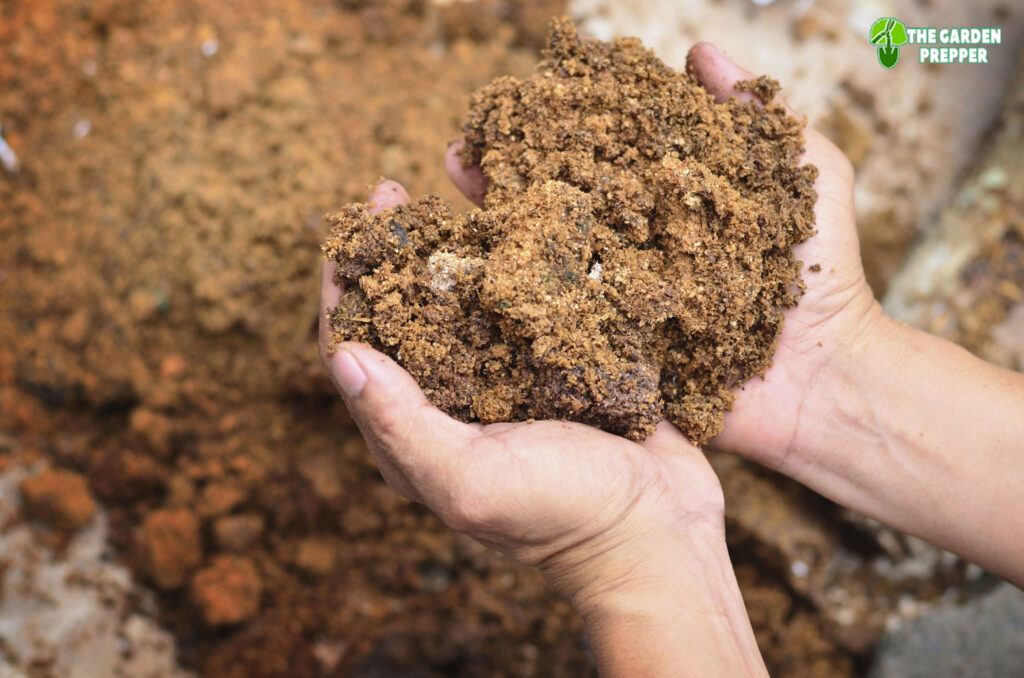There are different types of compost gardeners can use to help improve their plants’ growth. One of them is mushroom compost, which is known as a soil builder, keeping soil moist and breaking down dense clay.
However, with its many benefits, some have wondered about the cons it had. Some people question, ‘will mushroom compost burn plants?’ If you are worried about the negative effects of mushroom compost, read on to learn more about mushroom compost.

What is Mushroom Compost?
Mushroom compost you find in gardening shops is usually spent mushroom substrate from the mushroom farming industry. When these aren’t useful for growing mushrooms, these substrates will be recycled into compost.
While the compost doesn’t have as many nutrients, since mushrooms that used it consumed most of the available nitrogen, they still make a good soil amendment for dense soil. Its straw content would break up clay-like soils easily, also used in planting mixes or raised bed mediums.
These would improve the soil quality, and with its organic material, it improves water retention and continues breaking down over time.
Will Mushroom Compost Burn Plants?
Mushroom compost is known for its many benefits, though it does have a possibility of burning your plants. It may be too much of a good thing for young plants, seedlings, and seeds, as the soluble salts and nutrients might be too concentrated for salt-sensitive plants and younger plants.
Mushroom compost has a lot of salt as it has higher levels of sodium in manure and gypsum. If the soil has too much sodium, it would cause issues that affect the soil structure and plant growth, such as water retention by plant roots.
So yes, mushroom compost may burn plants, but only if you use it too much. Furthermore, it may burn plants that are too salt-sensitive. This is why you must use the right amount of mushroom compost and use it sparingly, or avoid it depending on the plant variety you are growing. You will know if your plant has burned when you see yellowish coloration on its leaves.
What to Watch Out For
You will need to take precautionary measures before adding this compost to the soil to prevent any burning. Here are some tips to follow to prevent plant and soil burns from the compost:
- Perform soil tests to know which nutrients your soil is deficient in
- Use mushroom compost that contains low sodium content to prevent your plants from being affected from excess salt
- Use mushroom compost at intervals rather than using it all in one time to prevent too much nutrients and salt deposits in the garden
- Take note that mushroom compost isn’t a replacement for soil. You should mix 25% mushroom compost with 75% soil, which is a good ratio as you begin with container planting.
- You can use mushroom compost as mulch, working it gradually into soil for amending. Don’t use any more than 3 inches of compost to prevent weed growth
- Be wary about using chemicals in the organic mushroom compost. You can actually make your own mushroom compost at home or purchase it from a reputable center.
Plants That Don’t Like Mushroom Compost
Now that you know about the pros and cons of mushroom compost, what are the plants that should not be mixed with mushroom compost?
This would depend on the mushroom soil and compost and what went into this at first. Again, mushroom compost would have higher levels of soluble salts. This means seeds, young plants, and these other plant varieties wouldn’t react nicely to this compost:
- Blueberries
- Rhododendrons
- Azaleas
- And other salt-sensitive plants
Not to worry, as there are other alternatives to mushroom compost, such as:
- Coffee grounds
- Hardwood dust
- Coconut coir with vermiculite
- Different kinds of manure (like horse and chicken)
- Peat moss
- Rice
- Cottonseed hulls
- Soybean or canola meal
Furthermore, there are ways to remove the salts from the compost. You can do vermicomposting to reduce salt levels while adding even more beneficial nutrients. Or, you can let it decompose in an open area, which is known as ‘curing’. Just be sure to keep it moist through adding water frequently, which will leach off most of the salt levels.
Read more: Which Vegetables Do Not Like Manure? Helpful Organic Gardening Tips
Wrapping It Up
While mushroom compost is beneficial, the burning of plants is a possibility, so you need to make sure to use the compost correctly. By using it correctly, it will help improve your plant yields and promote healthier growth. Just remember to be careful as you use mushroom compost and where you source it!
I hope that this article helped you learn more about mushroom compost and whether or not they are good to use for your plants. Now that you understand more about this compost, use it properly so your garden can grow well. Happy gardening!
